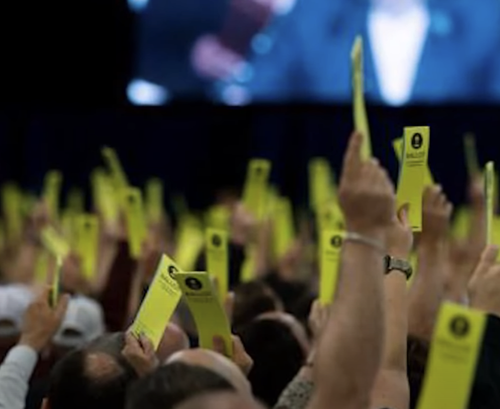It's hard to read the Psalms without encountering one of the 65 references to the Hebrew word "mishpat," which is usually translated as "judgments" or "justice."
The term appears 23 times in Psalm 119, in passages worshipers have sung for centuries, such as: "I will praise You with uprightness of heart, when I learn Your righteous judgments. I will keep Your statutes; Oh, do not forsake me utterly!"
But when Old Testament scholar Michael J. Rhodes dug into the Top 25 worship songs listed by Christian Copyright Licensing International, he found symbolic trends in the lyrics. For starters, "justice" was mentioned one time, in one song.
"The poor are completely absent in the top 25. By contrast, the Psalter uses varied language to describe the poor on nearly every page," he wrote, in a Twitter thread. "The widow, refugee, oppressed are completely absent from the top 25. …
“Whereas 'enemies' are the third most common character in the Psalms, they rarely show up in the Top 25. When they do, they appear to be enemies only in a spiritual sense. Maybe most devastatingly … not a SINGLE question is ever posed to God. The Top 25 never ask God anything. Prick the Psalter and it bleeds the cries of the oppressed pleading with God to act."
That's a long way from a Vespers Psalm promising: "The Lord sets the prisoners free; the Lord opens the eyes of the blind. The Lord lifts up those who are bowed down; the Lord loves the righteous. The Lord watches over the sojourners, he upholds the widow and the fatherless; but the way of the wicked he brings to ruin. … Praise the Lord."
When these issues surface in social media they often veer into debates about politics and social justice, noted Craig Greenfield, author of "Urban Halo" and "Subversive Jesus." A former dot-com entrepreneur, he leads the global youth ministry "Alongsiders International," based in Phnom Penh, Cambodia.
The question, he said, is why so many worship songs focus on personal experience and feelings -- alone. This has been true with new hymns for several generations.










